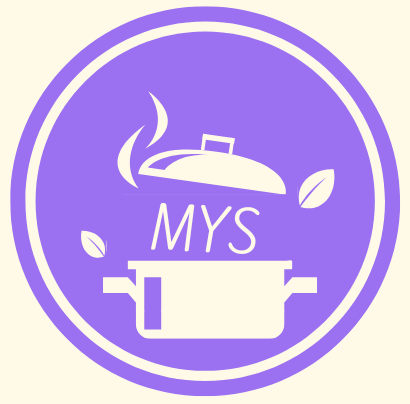If you’ve ever been fascinated by the art of making delicious baked goods from scratch, you’re in good company. Baking is not just a skill that yields tasty treats; it can also be a therapeutic activity that brings great satisfaction. Whether your goal is to wow family and friends or simply enjoy the process, it’s crucial to begin your baking journey on the right note. This baking for beginners guide will help you kick start your journey.
-
What is baking for Beginners
At its essence, baking is a science. It differs from other forms of cooking because it demands precise measurements, temperatures, and ingredients. Unlike cooking, where you can tweak flavors as you go, baking requires accuracy from the outset to achieve the desired outcome.
Key Ingredients to Know
- Flour: The foundation of most baked goods, providing structure. Various types (like all-purpose, bread, and cake flour) have different protein levels, which influence texture.
- Sugar: Beyond sweetness, sugar plays a role in moisture retention and browning.
- Leavening Agents: Baking soda, baking powder, and yeast are essential for helping doughs and batters rise.
- Eggs: They add structure, moisture, and richness to your recipes.
- Fats: Ingredients like butter or oil contribute flavor and create tender textures.
Grasping how these ingredients work together is the first step toward mastering the art of baking.
-
Essential Tools for Beginners
To bake successfully, having the right tools is just as important as having the right ingredients. Here’s a list of essential baking equipment:
- Measuring Cups and Spoons: Accurate measurements are crucial in baking.
- Mixing Bowls: A set of various sizes will serve different purposes.
- Whisk and Spatula: These are necessary for mixing and gently folding ingredients.
- Electric Mixer: While not mandatory, it simplifies the process of creaming butter and sugar or whipping cream.
- Baking Sheets and Pans: Make sure you have a basic assortment, including sheet pans, a loaf pan, and a round cake pan.
- Parchment Paper: This helps prevent sticking and makes cleanup easier.
Also Read: Easy Cooking Recipes for Beginners: A Beginner’s Guide
-
Start Simple: Beginner-Friendly Recipes
When you’re just getting started, the best way to gain confidence is by selecting simple recipes. Here are a few easy baking ideas for beginners:
- Classic Chocolate Chip Cookies
This beloved treat is an ideal starting point. The dough is simple to prepare, and the ingredients are easy to find.
- Banana Bread
Thanks to its forgiving nature, banana bread is a fantastic way to practice mixing wet and dry ingredients and working with leavening agents.
- Vanilla Cupcakes
Making cupcakes teaches you about batter consistency and the importance of baking times.
-
Tips to Improve Your Baking Skills
- Read the Entire Recipe First: Before you begin, read through the recipe completely. This will help you grasp the steps and avoid any surprises while you’re cooking.
- Measure Accurately: Always use the right measuring tools—liquid measuring cups for liquids and dry measuring cups for solids. Scooping flour directly with a cup can compact it, resulting in too much; instead, spoon it into the cup and level it off with a knife.
- Room Temperature Ingredients: Many recipes require ingredients like eggs and butter to be at room temperature. This is because they blend more smoothly, resulting in a better texture.
- Don’t Over mix: Over mixing can lead to dense, tough baked goods due to gluten formation. Mix just until the ingredients are combined.
- Use an Oven Thermometer: Not all ovens are perfectly calibrated, so an oven thermometer can help ensure you’re baking at the correct temperature.
- Practice Patience: Frequently opening the oven to check on your baked goods lets heat escape, which can affect the final result. Trust the process and only peek when absolutely necessary.
-
Common Beginner Mistakes to Avoid
- Skipping Preheating: Always make sure to preheat your oven. Baking in a cold oven can lead to uneven results.
- Using Expired Leavening Agents: Baking powder and baking soda can lose their effectiveness over time. Be sure to check the expiration dates and replace them as needed.
- Not Leveling Ingredients: When measuring dry ingredients, use a straight edge to level off for accurate measurements.
- Ignoring Cooling Time: Allowing baked goods to cool is essential for their structure. Cutting into a warm cake or bread can cause it to crumble.
-
Exploring Beyond Basics
Once you’ve got the hang of simple recipes, consider trying your hand at more intricate bakes like layered cakes, homemade bread, or fruit tarts. Each new recipe will help you develop different skills, from using a piping bag for decoration to kneading dough for a light texture.
Experiment and Have Fun
Don’t hesitate to make mistakes; they’re a natural part of the learning process. Baking for beginners should be a fun and rewarding journey. Celebrate your achievements and learn from any setbacks. With time and practice, what once seemed challenging will soon feel effortless.
Final Thoughts
Embarking on your baking journey is an exciting adventure. With the right mindset and a bit of patience, you’ll be able to create delicious treats that bring joy to you and those around you. Remember, every expert baker started as a beginner. So, preheat that oven, grab your mixing bowl, and let the baking adventure begin!
Here is the link of web story of this blog: Baking for beginners your ultimate guide to start right



